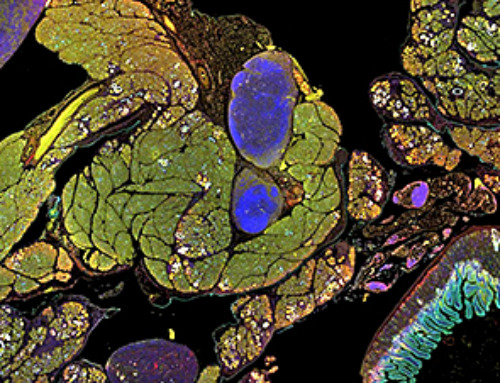Manmade pollutants and climate change contribute to millions of deaths from cardiovascular disease each year, warn a coalition of leading scientists.
A new series published today (June 3) in the Journal of the American College of Cardiology highlights how pollution, in all its forms, is a greater health threat than that of war, terrorism, malaria, HIV, tuberculosis, drugs, and alcohol combined.
The researchers focus on global warming, air pollution, and exposure to wildfire smoke. They also highlight the lesser-known drivers of heart disease including soil, noise and light pollution, and exposure to toxic chemicals. The team includes researchers from the University of Edinburgh, Icahn School of Medicine at Mount Sinai, Global Observatory on Planetary Health Boston College, Centre Scientifique de Monaco, University Medical Centre Mainz, and the Victor Chang Cardiac Research Institute.
Urgent Need for Better Monitoring
They say there is an urgent need to improve the monitoring of these pollutants to identify communities most at risk, and better understand how exposure to specific pollutants raises the risk of cardiovascular disease at the individual level.
Professor Jason Kovacic, Director and CEO of the Australian-based Victor Chang Cardiac Research Institute, says there needs to be far greater recognition of the dangers of pollution and the role it plays in causing around nine million deaths each year globally.
Professor Kovacic says: “Every year around 20 million people worldwide die from cardiovascular disease with pollutants playing an ever-increasing role.
“Pollutants have reached every corner of the globe and are affecting every one of us. We are witnessing unprecedented wildfires, soaring temperatures, unacceptable road noise and light pollution in our cities, and exposure to untested toxic chemicals in our homes.
Various Pollution Impacts on Health
“Our bodies are being bombarded with pollutants from every angle and they are taking a toll on our heart health. The evidence suggests that the number of people dying prematurely because of these very different forms of pollution is far higher than currently recognized.”
Pollutants are known drivers of cardiovascular disease, but they affect the body in different ways. Smoke and other toxins can be directly inhaled deep into the lower respiratory tract and reach the blood and then be transported to other organs and throughout our bodies. They can cause oxidative stress which can damage cells and organs including the heart.
Other pollutants like noise and light pollution can affect sleep patterns, drive inflammation and lead to an increase in blood pressure and weight gain. Extreme heat can also lead to dehydration, decreased blood volume, increased cardiovascular strain, and acute kidney failure.
Gaps in Understanding and Future Directions
Professor Kovacic adds: “Whilst many of these biological mechanisms are known, we still have a huge gap in our understanding of the link between pollutants and heart disease.
“There are hundreds of thousands of chemicals that haven’t even been tested for their safety or toxicity, let alone their impact on our health. We also need to discover if there are other risk factors that make people more susceptible – such as pre-existing conditions, lifestyle factors or where they live.”
Professor Kovacic and the other authors say that in the future, people will be routinely tested for exposure to more pollutants – just like children are currently tested for lead exposure in the USA.
The authors note that while the environmental crisis is imminent, and impact on health ever more pressing, the impetus for change appears sporadic. “Urgent action is required as climate change strides forward and pollution infiltrates the air we breathe, the water we drink, the food we eat, and the places we live in,” they write.
The team of researchers make a series of recommendations including:
- Calling for the implementation of heart-healthy changes to city design such as increasing tree cover, safe means of active travel and reduced use of vehicles.
- Ending subsidies to the fossil fuel industry to enable more investment in renewables and cleaner energy production.
- Public health campaigns about the dangers of air pollution.
- Medical education to better reflect the growing dangers of pollutants.
Key statistics:
- Outdoor and indoor air pollution combined, are associated with over seven million premature deaths per year, of which over 50% are ttributable to cardiovascular causes, principally ischemic heart disease and stroke.
- A fifth of all cardiovascular deaths are caused by air pollution.
- During heat waves, the risk of heat-related cardiovascular mortality may increase by more than 10%.
- In the USA there has been a 77% increase in exposure to wildfire smoke since 2002.
- Globally, wildfire smoke has been estimated to be responsible for 339,000 to 675,000 premature deaths per year.
- Over 300,000 new synthetic chemicals have been manufactured since 1950, and the human safety profile of many of these chemicals is unknown.
- In Europe it is estimated 113 million people are affected by long-term day-evening-night traffic noise levels of at least 55 dB(A).
References:
“Environmentally Not So Friendly: Global Warming, Air Pollution, and Wildfires: JACC Focus Seminar, Part 1” by Mark R. Miller, Philip J. Landrigan, Manish Arora, David E. Newby, Thomas Münzel, and Jason C. Kovacic, 3 June 2024, Journal of the American College of Cardiology.
DOI: 10.1016/j.jacc.2024.03.424
“Water, Soil, Noise, and Light Pollution: JACC Focus Seminar, Part 2” by Mark R. Miller, Philip J. Landrigan, Manish Arora, David E. Newby, Thomas Münzel, and Jason C. Kovacic, 3 June 2024, Journal of the American College of Cardiology.
DOI: 10.1016/j.jacc.2024.03.421
News
Studies detail high rates of long COVID among healthcare, dental workers
Researchers have estimated approximately 8% of Americas have ever experienced long COVID, or lasting symptoms, following an acute COVID-19 infection. Now two recent international studies suggest that the percentage is much higher among healthcare workers [...]
Melting Arctic Ice May Unleash Ancient Deadly Diseases, Scientists Warn
Melting Arctic ice increases human and animal interactions, raising the risk of infectious disease spread. Researchers urge early intervention and surveillance. Climate change is opening new pathways for the spread of infectious diseases such [...]
Scientists May Have Found a Secret Weapon To Stop Pancreatic Cancer Before It Starts
Researchers at Cold Spring Harbor Laboratory have found that blocking the FGFR2 and EGFR genes can stop early-stage pancreatic cancer from progressing, offering a promising path toward prevention. Pancreatic cancer is expected to become [...]
Breakthrough Drug Restores Vision: Researchers Successfully Reverse Retinal Damage
Blocking the PROX1 protein allowed KAIST researchers to regenerate damaged retinas and restore vision in mice. Vision is one of the most important human senses, yet more than 300 million people around the world are at [...]
Differentiating cancerous and healthy cells through motion analysis
Researchers from Tokyo Metropolitan University have found that the motion of unlabeled cells can be used to tell whether they are cancerous or healthy. They observed malignant fibrosarcoma cells and [...]
This Tiny Cellular Gate Could Be the Key to Curing Cancer – And Regrowing Hair
After more than five decades of mystery, scientists have finally unveiled the detailed structure and function of a long-theorized molecular machine in our mitochondria — the mitochondrial pyruvate carrier. This microscopic gatekeeper controls how [...]
Unlocking Vision’s Secrets: Researchers Reveal 3D Structure of Key Eye Protein
Researchers have uncovered the 3D structure of RBP3, a key protein in vision, revealing how it transports retinoids and fatty acids and how its dysfunction may lead to retinal diseases. Proteins play a critical [...]
5 Key Facts About Nanoplastics and How They Affect the Human Body
Nanoplastics are typically defined as plastic particles smaller than 1000 nanometers. These particles are increasingly being detected in human tissues: they can bypass biological barriers, accumulate in organs, and may influence health in ways [...]
Measles Is Back: Doctors Warn of Dangerous Surge Across the U.S.
Parents are encouraged to contact their pediatrician if their child has been exposed to measles or is showing symptoms. Pediatric infectious disease experts are emphasizing the critical importance of measles vaccination, as the highly [...]
AI at the Speed of Light: How Silicon Photonics Are Reinventing Hardware
A cutting-edge AI acceleration platform powered by light rather than electricity could revolutionize how AI is trained and deployed. Using photonic integrated circuits made from advanced III-V semiconductors, researchers have developed a system that vastly [...]
A Grain of Brain, 523 Million Synapses, Most Complicated Neuroscience Experiment Ever Attempted
A team of over 150 scientists has achieved what once seemed impossible: a complete wiring and activity map of a tiny section of a mammalian brain. This feat, part of the MICrONS Project, rivals [...]
The Secret “Radar” Bacteria Use To Outsmart Their Enemies
A chemical radar allows bacteria to sense and eliminate predators. Investigating how microorganisms communicate deepens our understanding of the complex ecological interactions that shape our environment is an area of key focus for the [...]
Psychologists explore ethical issues associated with human-AI relationships
It's becoming increasingly commonplace for people to develop intimate, long-term relationships with artificial intelligence (AI) technologies. At their extreme, people have "married" their AI companions in non-legally binding ceremonies, and at least two people [...]
When You Lose Weight, Where Does It Actually Go?
Most health professionals lack a clear understanding of how body fat is lost, often subscribing to misconceptions like fat converting to energy or muscle. The truth is, fat is actually broken down into carbon [...]
How Everyday Plastics Quietly Turn Into DNA-Damaging Nanoparticles
The same unique structure that makes plastic so versatile also makes it susceptible to breaking down into harmful micro- and nanoscale particles. The world is saturated with trillions of microscopic and nanoscopic plastic particles, some smaller [...]
AI Outperforms Physicians in Real-World Urgent Care Decisions, Study Finds
The study, conducted at the virtual urgent care clinic Cedars-Sinai Connect in LA, compared recommendations given in about 500 visits of adult patients with relatively common symptoms – respiratory, urinary, eye, vaginal and dental. [...]





















